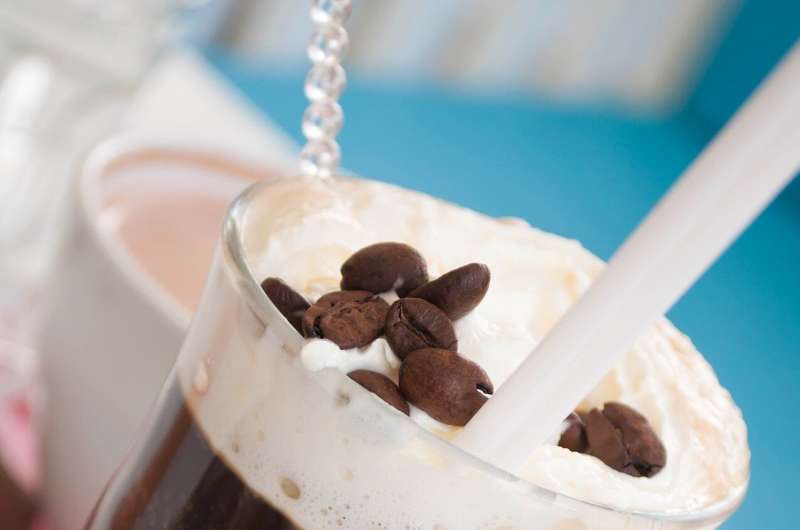Sleep is essential for our overall well-being, yet many of us struggle to get a good night’s rest. Factors such as stress, technology, and even our dietary choices can significantly impact the quality of our sleep. In this article, we’ll explore the unexpected effects of caffeine and alcohol on sleep, and how they can disrupt our natural sleep patterns.

Credit: medicalxpress.com
The Impact of Caffeine
Caffeine is a central nervous system stimulant that is found in coffee, tea, energy drinks, and certain medications. It is widely consumed to increase alertness and reduce fatigue. However, the stimulating effects of caffeine can linger in our bodies for several hours, making it difficult to wind down and fall asleep.
When consumed in the afternoon or evening, even small amounts of caffeine can disrupt our natural sleep-wake cycle, leading to difficulty falling asleep and reduced overall sleep time. It’s important to be mindful of the hidden sources of caffeine, such as chocolate and some pain relievers, which can also impact our sleep.
Understanding Caffeine’s Effects On Sleep
As an adenosine antagonist, caffeine blocks the sleep-inducing effects of adenosine, a neurotransmitter that promotes relaxation and sleep. This interference can make it challenging for the brain to enter the natural sleep state, leading to a restless night and reduced sleep quality.
Additionally, consuming caffeine within 6 hours of bedtime can significantly disrupt our sleep patterns, leading to fragmented sleep and frequent awakenings during the night. These disturbances can prevent us from reaching the restorative stages of sleep, such as deep and REM sleep, which are crucial for our physical and mental rejuvenation.
The Impact of Alcohol
Alcohol is often consumed as a social lubricant or as a way to unwind after a long day. While it can initially make us feel relaxed and drowsy, the effects of alcohol on our sleep can be surprisingly detrimental.
Contrary to popular belief, alcohol disrupts the natural progression of sleep stages and compromises the overall quality of our rest. It interferes with the body’s ability to maintain stable, restorative sleep throughout the night, leading to fragmented and disrupted sleep patterns.
Understanding Alcohol’s Effects On Sleep
Although alcohol is a sedative that can help us fall asleep faster, it actually impairs the quality of our rest by altering the normal sleep architecture. It suppresses REM sleep in the first half of the night and increases sleep disruptions in the second half, resulting in a less restful and restorative night’s sleep.
Furthermore, alcohol can exacerbate sleep disorders such as sleep apnea and snoring, leading to more severe breathing disturbances during sleep. This can further compromise the overall quality of our rest and contribute to daytime drowsiness and fatigue.

Credit: newsroom.uw.edu
Strategies for Improving Sleep Quality
Fortunately, there are steps we can take to minimize the impact of caffeine and alcohol on our sleep:
- Limit caffeine intake: Be mindful of your caffeine consumption and avoid consuming it in the afternoon and evening hours to minimize its disruptive effects on sleep.
- Establish a wind-down routine: Create a relaxing bedtime routine to signal to your body that it’s time to unwind and prepare for sleep. This can include activities such as reading, taking a warm bath, or practicing relaxation techniques.
- Monitor alcohol consumption: Limit your alcohol intake, especially in the hours leading up to bedtime, to minimize its negative impact on your sleep quality.
- Create a sleep-friendly environment: Ensure that your sleep environment is conducive to rest by making your bedroom dark, quiet, and at a comfortable temperature.
- Practice good sleep hygiene: Establish a consistent sleep schedule, avoid stimulating activities before bedtime, and limit screen time to promote better sleep quality.
Frequently Asked Questions On The Unexpected Impact Of Caffeine And Alcohol On Sleep: Surprising Findings Unveiled!
Can Drinking Caffeine Affect My Sleep Quality?
Drinking caffeine, especially in the evening, can disrupt your sleep by reducing sleep depth and increasing nighttime awakenings.
How Does Alcohol Consumption Impact Sleep?
Alcohol may help you fall asleep faster but can disrupt your sleep by reducing the overall quality and causing more snoring and sleep apnea episodes.
What Is The Recommended Limit For Caffeine Intake?
To minimize sleep disruptions, it’s advised to limit caffeine intake to no more than 400 milligrams per day, with no caffeine consumption after late afternoon.
Does Caffeine Affect Everyone’s Sleep The Same Way?
Individual sensitivity to caffeine varies, but in general, caffeine affects everyone’s sleep by interfering with adenosine receptors and stimulating the nervous system.
Conclusion
Our dietary choices, including the consumption of caffeine and alcohol, can significantly influence the quality of our sleep. By understanding the unexpected impact of these substances on our sleep patterns, we can make conscious decisions to support healthy and restorative rest. Incorporating mindful practices and creating a sleep-friendly environment can help us optimize our sleep quality and overall well-being.
Leave a Reply